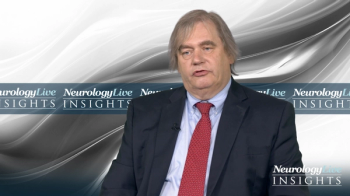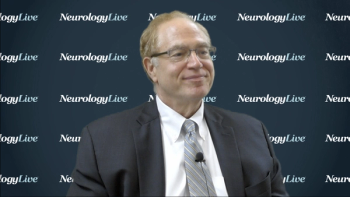
The director of the Montefiore Headache Center will provide further insight into migraine care at the 1st Annual International Congress on the Future of Neurology, to be held September 27-28 in New York City.

The director of the Montefiore Headache Center will provide further insight into migraine care at the 1st Annual International Congress on the Future of Neurology, to be held September 27-28 in New York City.

A boy diagnosed with glycine encephalopathy in the newborn period was initiated on the ketogenic diet at 11 years-old for the treatment of medication refractory epilepsy.

The founder and CEO of NeuroEM Therapeutics discussed the potential of transcranial electromagnetic treatment and shared insight into the advantages it may hold over the traditional treatment route.

The study, expected to complete in early 2021, will measure change from baseline in daily on time without troublesome dyskinesia. The study design will be presented at the International Congress of Parkinson's Disease and Movement Disorders.

Neurology News Network for the week ending September 7, 2019.

Novartis’ CD20+ B cell- targeting, fully-human antibody has outperformed teriflunomide (Aubagio) in a pair of phase 3 studies. The top-line data were presented at ECTRIMS 2019 in Stockholm, Sweden.

Given that ICH is associated with some of the worst outcome rates among stroke subtypes, investigators sought to evaluate the effect of improved implementation of a system of evidence- and guideline-based interventions.
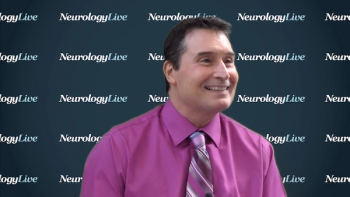
The distinguished professor and director of cell biology at Missouri State University discussed the use of nVNS in migraine treatment and whether or not it can replace the use of or be used in conjunction with triptans—a medication on which many patients fail or report poor response on.

The senior vice president for research at the Kessler Foundation discussed the need for physicians to keep cognitive problems on their mind when treating patients with multiple sclerosis, and the importance of using objective assessments.

The use of the central vein sign resulted in a sensitivity of 68.1% and a specificity of 82.9% in distinguishing cases of MS on 3T MRI in a recent cross-sectional study.

The founder and CEO of NeuroEM Therapeutics discussed the potential of transcranial electromagnetic treatment, or TEMT, in treating patients with Alzheimer disease, with the hope of reversing cognitive impairment.
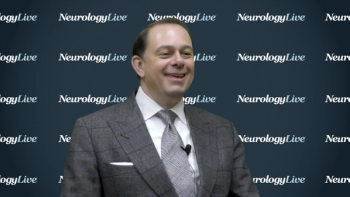
The clinical research director of the University of California, San Fransciso’s Multiple Sclerosis Center discussed the findings of a 230-patient study of inebilizumab versus placebo in NMOSD.

The distinguished professor and director of cell biology at Missouri State University discussed the findings of a model of nVNS which suggested it operates through a novel mechanism compared to available migraine therapies.

A number of cerebrovascular risk factors found to be associated with a subsequent diagnosis of Alzheimer disease also showed a high association with a diagnosis of Parkinson disease, pressing the impetus for controlling these modifiable factors.

The senior vice president for research at the Kessler Foundation detailed the current recommendations for cognitive screening in patients with MS, and appealed to clinicians to make the time for these symptoms in MS.
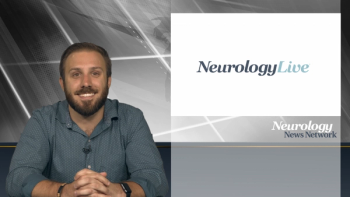
Neurology News Network for the week ending August 31, 2019.

The senior vice president for research at the Kessler Foundation discussed the need for physicians to keep cognitive problems on their mind when treating patients with multiple sclerosis, and the importance of using objective assessments.

The implementation of focused ultrasound has been practice changing in tremor, but the various arenas in which this technology can be used opens up new treatment avenues for a range of neurological disorders.

Serum NfL levels, at as early as the time of diagnosis, were a strong and independent predictor of death in patients with amyotrophic lateral sclerosis, with the study results expanding on the findings of prior literature.

Targeting research in cognitive impairment in epilepsy primarily on seizures themselves suggests that a patient’s comorbid problems will resolve with seizure control, though that is not always the case.

The guidelines recommend that patients with MS receive their recommended vaccines, including that for yearly influenza. Additionally, they noted that no evidence exists that suggests vaccination increases the risk of MS exacerbation.

As new dual orexin receptor antagonists become available to treat sleep disorders, time will tell whether this new class of drugs will fulfill its promise for a disorder plagued by underdiagnosis and indifference.

After being approved in Japan in 2013, the selective adenosine A 2A receptor antagonist was given the OK as an add-on to levodopa/carbidopa treatment in adults with Parkinson disease.

The director of comprehensive epilepsy center and professor of neurology at Thomas Jefferson University spoke to the evolution of epilepsy interventions over the last decade and its effect on the level of care for patients.

US WorldMeds rimabotulinumtoxinB injection showed significant decreases in sialorrhea symptoms with a single treatment as soon as the first week, lasting up to 3 months in clinical studies.

Interest in advancing research in stroke therapeutics has historically come in fits and starts. Now with intravenous tPA and thrombectomy in regular use, experts are looking to get a step ahead of the damage.

The professor of age-related diseases and dean of the University of Exeter Medical School discussed the need for improvement in nursing home care for those with dementia.

Rodney Allan Radtke, MD, professor of neurology at Duke University School of Medicine in Durham, North Carolina, discussed some of the new therapeutic options available to help improve tolerance and adherence challenges that clinicians commonly face in epilepsy practice.
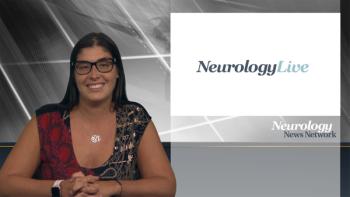
Neurology News Network for the week ending August 24, 2019.
